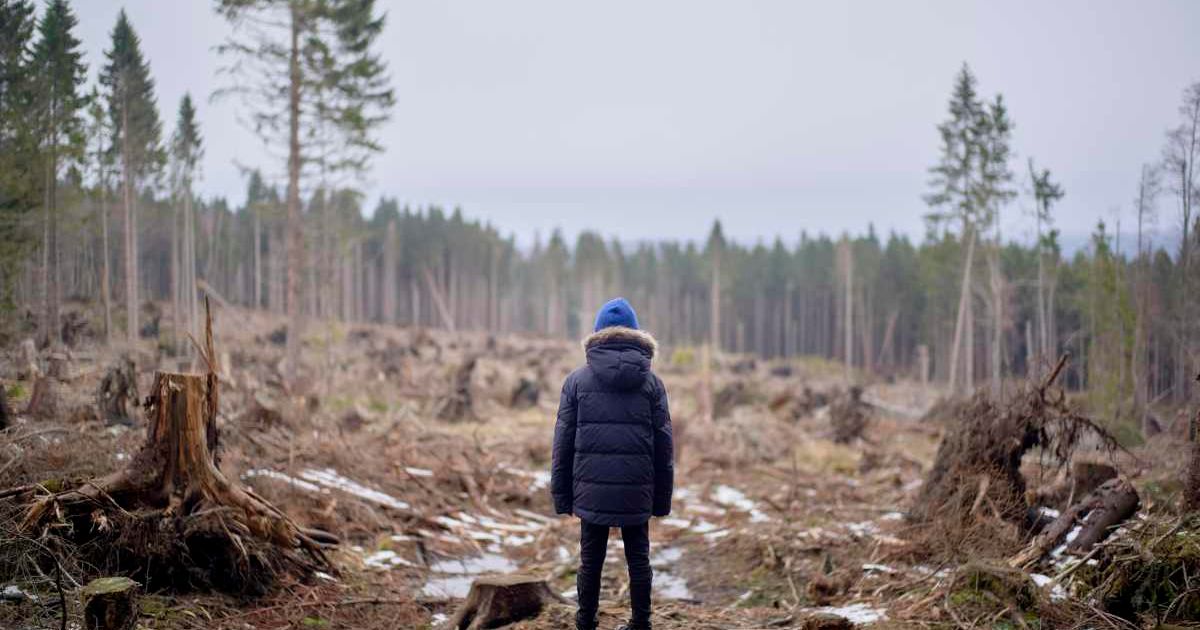Experts Warn That the World Is Far Behind on Achieving Zero Deforestation Targets By 2030

Deforestation is rapidly increasing across the world, caused by various factors, including population growth and urban expansion. This concerning scenario is leading to an imbalance in biodiversity, increased carbon emissions, and changing weather patterns. To fight this, governments, organizations, and communities from different countries have come up with stricter regulations, reforestation projects, and are teaching people about sustainable practices. While some progress has been made, a new report claims that the world is still significantly behind. According to the experts, current efforts are running about 63% off track from meeting the zero-deforestation target set for 2030.

A few years ago, as many as 127 countries, including the major ones, pledged to stop and reverse the forest loss by 2030. But a newly published report by the Forest Declaration Assessment shows a delay in the plan. The report states, “While some countries are demonstrating that progress is possible, the global trend remains one of stagnation, not transformation.” As per the assessment, in 2024, the world lost around 8.1 million hectares of forest land, with the loss particularly being severe in humid primary tropical forests. Experts have attributed much of this rise to a rise in forest fires fueled by climate change.

To control the situation and get back on track, the goal is to limit forest loss to no more than 4.1 million hectares by the end of this year. So, the world would need to reduce the current rate of deforestation by half. However, mid-year data suggested that the target is unlikely to be fulfilled. As reported by Mongabay, 209,000 hectares of deforestation allegedly took place in the Amazon forest from January to June 2025, which is almost 27% more than the previous year. Moving ahead, the new report also claims that about 8.8 million hectares of forests were affected by degradation, weakening the overall ecosystems, in 2024.

Additionally, money meant to help forests is still going the wrong way, with harmful subsidies being more than 200 times larger than green subsidies. Despite the promises, the funds remain far too small to meet the 2030 goals. Erin Matson, the lead author of the report, spoke about the alarming situation and said, “Every year, the gap between commitments and reality grows wider. Forests are non-negotiable infrastructure for a livable planet.” She added, “What happens in the next five years will have a huge impact on the livability of our planet.”

Matson further stressed, “We need global leaders to make forest protection nonnegotiable because our collective prosperity and well-being depend on it.” As reported by Euro News, another climate expert, Franziska Haupt, rightly said, “Efforts to protect forests don’t stand a chance as long as our economic system keeps rewarding quick profits from forest destruction. Too often we see only surface-level solutions – such as tree-planting campaigns or voluntary commitments with no follow-through – that look good on paper but do nothing to change the underlying system.” The report also hinted that a lack of coordination has been a major obstacle to achieving real progress in this regard.
More on Green Matters
Wondering Why Deforestation Is Such a Big Deal? Here Are the Facts
Here's How Deforestation Disrupts the Natural Cycle of Carbon
Is Reversing Deforestation Possible? Behind the Efforts to Fix What We've Damaged